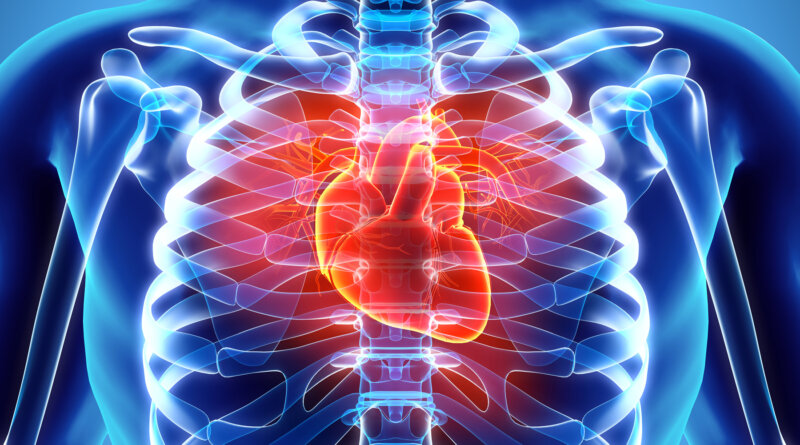A Day in the Life of My Heart Failure
By Aimee Rodriguez Zepeda, as told to Danny Bonvissuto
I didn’t have the typical feeling people describe, like trouble breathing. Instead, I was tired. I was 39 with two kids in grade school and two in high school. Feeling run down seemed pretty typical for women like me.
I went to my primary care doctor. I thought I was just going to tell her I was tired and ask if she could suggest a good B12 vitamin.
Instead, she listened to my heart and said, “I don’t like what I hear.” She referred me to a cardiologist and said I needed to go within the next day or two.
I thought, “I’m OK. It’s nothing. Something small. They’re just going to tell me I’m getting older and need to lose weight. All the usual stuff.”
A few days later, I had an echocardiogram. Afterward, the cardiologist came in, sat down, and in the most direct way, he said, “You have heart failure. Your heart is working at 20%.”
I was like, “Wait. What?”
He repeated himself, then handed me a box of tissues.
I have dilated cardiomyopathy, congestive heart failure, and systolic heart failure. That means my heart is enlarged and doesn’t pump well enough.
For a while I just sat there and wasn’t sure what to say. Then I said, “How do we fix this? What do we do?”
He said, “Heart failure isn’t something you fix — it’s something you manage. We’re going to attack this aggressively right now to get your function up, but this is a lifetime commitment.”
Before my diagnosis, I did what I wanted to do. I ate what I wanted, and didn’t really think about what I was eating, even though all the women in my family, including my elderly mother, have heart failure. My doctor believes my issue is a mixture of genetics and side effects of the chemotherapy I’d gotten for uterine cancer 7 years earlier.
Big Changes Quickly
Right away, I changed how I ate. I love my adobo seasoning, but had to stay away from salt. I figured out quickly that I craved whatever I could no longer eat. I’ve never craved a Big Mac so much in my life, even though I was never that much of a McDonald’s fan. I had to ask myself, is it worth it?
Another thing I had to learn how to manage quickly was stress. Stress is our enemy. That’s something I’m still working on, to be honest.
Continued
Everyday Challenges
Every day is different. Some days I get up and feel like I can take on the world. Other days, not so much. I’m a government contractor, I’m pursuing my PhD in public policy and administration, and I care for my mother, who lives with me. I had to learn to listen to my body. If your body tells you you’re tired, you’re tired. Rest.
Showers are a challenge. The heat from the shower, plus the energy it takes to wash my hair, makes me tired. I have to sit and relax afterward.
I also have to take my time cleaning the house. Something that would’ve taken me a couple hours back in the day takes me all day now.
I still do a lot of the same things I did before I was diagnosed with heart failure; it just takes me longer to do them. Heart failure gave me a different perspective on life: It’s not always important to get everything done in one day. Before my diagnosis, that would’ve made me insane.
The good part? It slowed me down. The bad part? It slowed me down.
Treatment Today
I’m on several different types of medication: heart medication, diuretics, vitamins, and acid reflux medication. Years ago, after my chemo treatments, I started having petit mal seizures, or staring off moments. So now I take seizure medication, too.
My doctors are always tweaking and changing my medicine to adjust to my body’s needs.
Diet and Exercise
In the morning I’ll have some eggs and fruit. In the afternoon, maybe a grilled chicken sandwich with a baked potato. For dinner, I may have chicken or seafood with green beans, maybe a little rice and a side salad.
For exercise, I take walks or use the Stairmaster in my bedroom. I aim for 30 minutes or so, three times a week. It’s harder in the summer because of the heat, but I’m able to do more in the winter.
I have a very good support system. My kids have their moments, like all kids do, but they’re very caring. If they realize I don’t feel good and need something, they’ll help me down the stairs, or sit on the couch next to me. They do small things, but it shows me that they understand if I’m not feeling good that day.
Continued
Advocate for Yourself
I always tell people not to look for the typical signs. You never know how your body is going to react. My kidneys can’t effectively get rid of the fluid in my body, and my heart has a hard time pumping everything to the right places. I retain fluid in my stomach, face, and arms, and if it gets to my legs and feet, I know I’m extremely over-flooded. Fluid puts stress on your heart and can send you into cardiac arrest.
If you don’t feel good, get it checked out. Even if your doctor says it’s probably nothing, get it checked out. It’s easier to fix a problem before it’s a problem than to fix a problem when it’s a problem.



